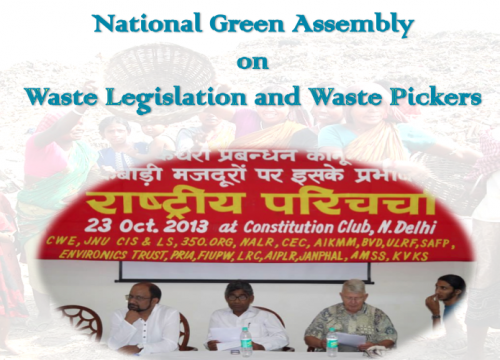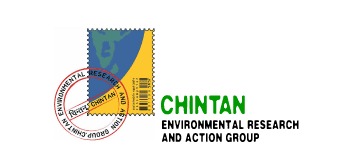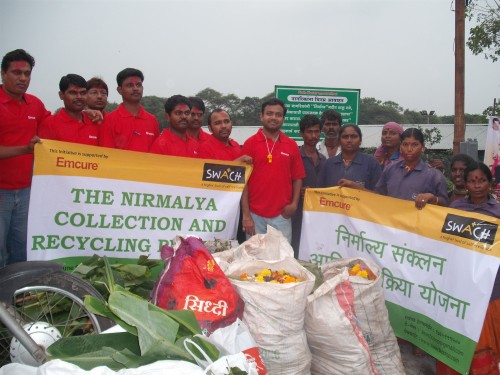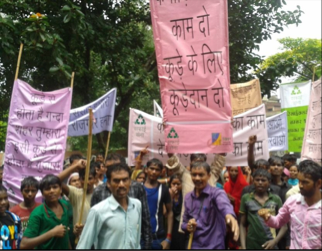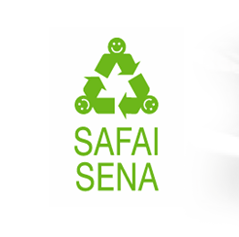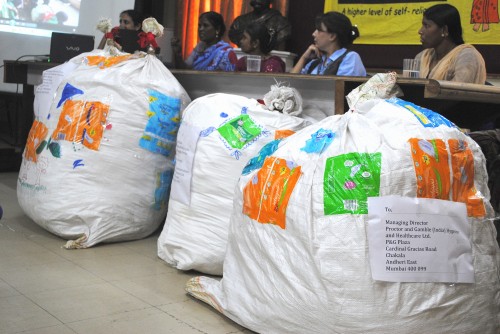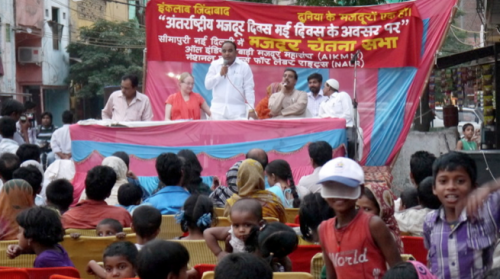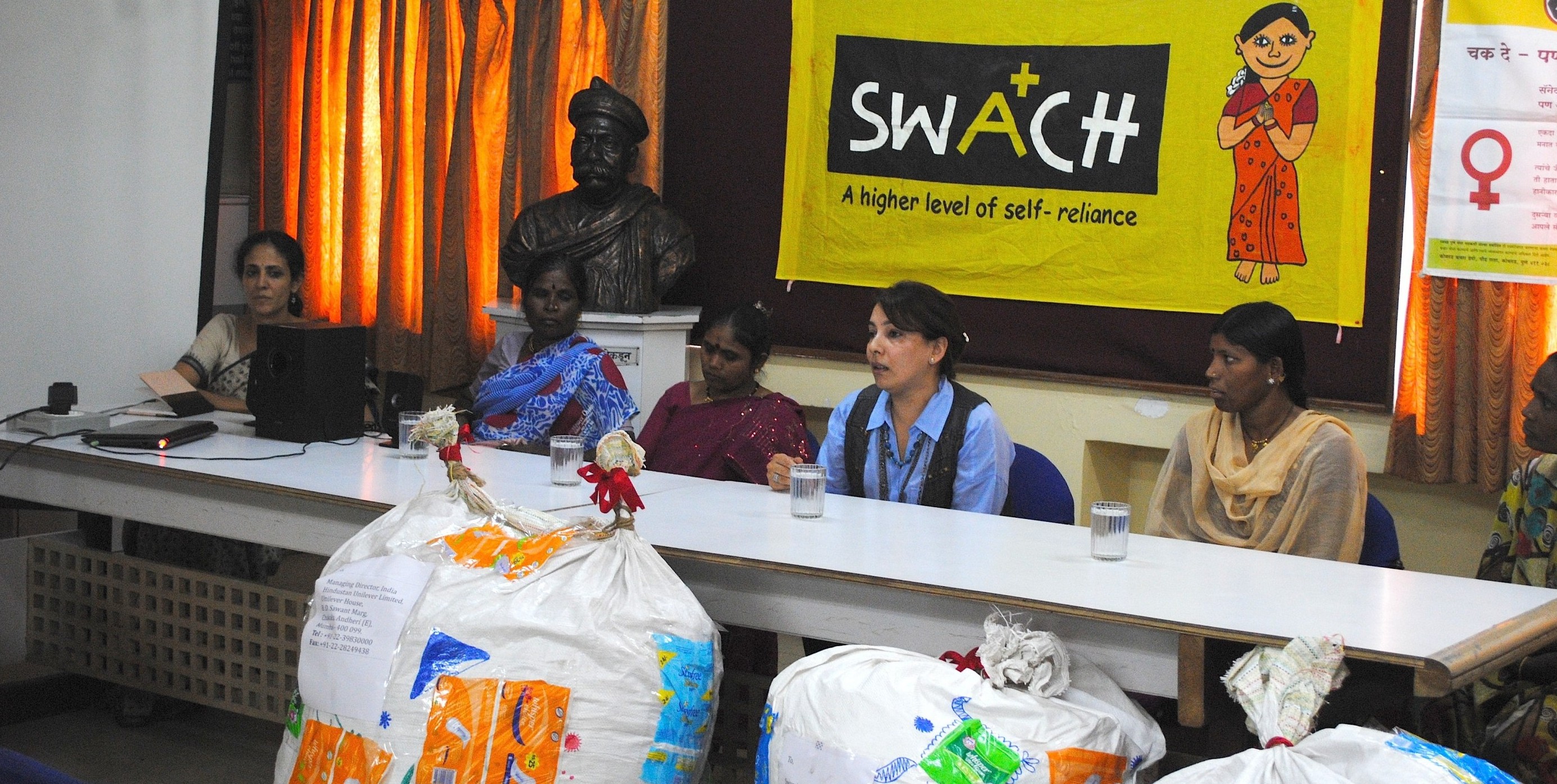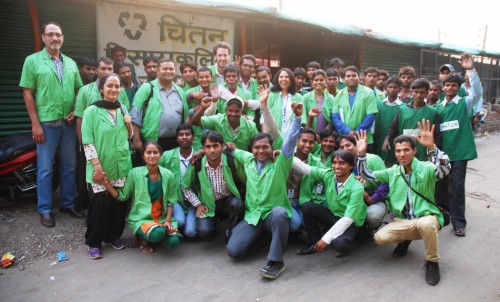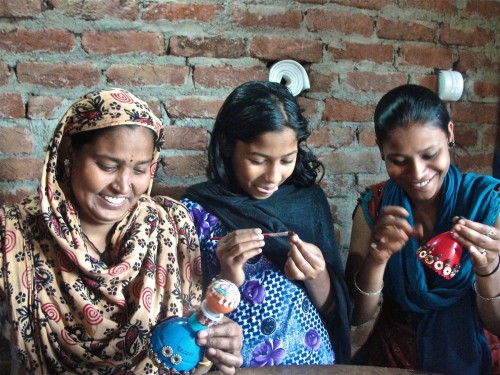
INTERNATIONAL ALLIANCE OF
WASTE PICKERS
The International Alliance of Waste Pickers is a union of waste picker organizations representing more than 460,000 workers across 34 countries
Supported by

Posts by Alliance of Indian Wastepickers
An update from Hasiru Dala, a member-based organisation of waste pickers seeking to improve our conditions of work and ensuring continued access to recyclables in the city of Bangalore. Hasiru Dala works towards accessing the benefits of various government programs to which waste pickers are entitled, enhancing educational opportunities for their children and advancing the quality of their lives.
Rag Pickers are the backbone of a neat and beautiful metropolis. The green workers manage entire trash of urban locates around the globe. However, their contribution to the city’s waste management remains unrecognized. Vulnerability is exacerbated by the municipal solid waste management rules 2013.
On August 28th, 2013, the Ministry of Environment and Forests released the draft MSW Rules 2013 for public comments. These draft Rules are updating the original landmark Rules passed in 2000. Thirteen years later, we have learnt a lot about how to manage solid waste management programs that can clean our cities, provide jobs, and help reduce our burden on the environment. But these draft Rules have missed this incredible opportunity to apply the lessons we have learnt thus far.
Each day waste pickers have to directly handle hundreds of soiled sanitary pads and diapers (baby and adult). SWaCH designed a S.T. disposable bag for the appropriate disposal of soiled sanitary pads. However, there has been an urgent need to look into the appropriate disposal of soiled diapers as well. Responding to this need, SWaCH has designed an identifiable label for the disposal of soiled diapers.
There is urgent need to assess the measures that the government has taken over the past decade to improve waste management in the country. Millions of dollars have been spent in large scale, centralised technochratic solutions with little impact or improvement in levels of recycling. The Draft MSW Rules, 2013, do nothing to reform the situation. Instead, they seek to continue with the status quo and only increase the already thriving presence of waste to energy plants across the country. Is this the answer to our waste management woes? A consultation of concerned stakeholders seeks to address this question.
125 wastepickers, with the support of 400 volunteers diverted over 97 tonnes of nirmalya — offerings from this Ganapati festival — from the city’s rivers!!
Working very hard in most unfavorable and hazardous conditions, they are the sole player in reducing carbon emission by saving remarkable amount of energy and ensuring recycling and reuse of major portion of the garbage. Their role is not only to serve the environment they are also playing key role to support the executing bodies in saving a huge part of revenue and reducing the carbon emission. Sign the petition here.
Check out Safai Sena’s first newsletter in English: “Safainama: Voice of Waste Pickers.”
On August 16, 2013, over 250 waste recyclers of Safai Sena held a protest in front of Ghaziabad Nagar Nigam office. Many of them marched over 12 kilometers despite heavy rains that day. The protest was organized to raise a collective voice against the illegal collection of money by private contractors and exploitation of waste recyclers in Kavi Nagar and Mohan Nagar zones.
Manwara, a waste picker, has been in Delhi since her childhood. She chose this work to add to her husband’s income who is also a waste picker. Recently, Manwara’s dream turned ugly when her innocent children were blamed for a theft that happened in the nearby area. She was unaware that her being waste picker would make her so vulnerable to being accused, harassed, and suffers violence openly.
Currently wastepickers have to deal with this waste as part of household waste that they collect and also when they are picking from containers, dumps and landfills. In the recent years the amounts of this waste is also rising rapidly. As you can imagine handling this waste with their bare hands is particularly degrading and can impact the health of women who can have a compromised immune system from malnutrition and hardships.
Jai Prakash Chaudhary, Safai Sena | Region Asia-Pacific | Aug 01, 2013
On July 26, Safai Sena sent letters to New Delhi’s Minister of Health and Family Welfare in the Women and Child Department and the Delhi Commission for Women detailing what happened to the Safai Sena waste picker and her son on July 19 and calling for a number of actions and reforms. (the letters were written by Jai Prakash Choudhary, Safai Sena secretary)
Maitreyi Shankar, Deia de Brito | Region Asia-Pacific | Jul 02, 2013
Lack of access to education is one of the many struggles that waste pickers and their children have endured, coupled by the pressure to drop out of school for lack of financial resources. While there has been a law in place since 1977 that designates educational support for the children of parents who perform “unclean” occupations, government officials have created barriers and made things difficult for waste pickers.
DSS, an NGO based in Ujjain, India organized a waste pickers’ convention in June. The organizers reported that the feedback from the participants was very positive. Many said it was the first time they had participated in something like this and it boosted their confidence to have a government official in their midst interacting with them respectfully.
Chintan celebrated World Environment Day at Select Citywalk Mall, Saket on the 4th and 5th of June 2013 Day, to encourage awareness on cleaner environment.
In recognition of International Labour Day, or May Day, AIKMM and its associate organization NALR hosted a program to promote solidarity amongst the waste collectors in northeast Delhi.
SWaCH waste pickers’ cooperative began bringing attention to a little known but very important issue more than two years ago: the proper disposal of used sanitary napkins. After sending numerous requests to manufacturers of sanitary napkins and diapers and receiving no response, SWaCH came up with a last resort. The cooperative collected used sanitary napkins and sent them back in boxes to the companies’ corporate offices as a gift on International Women’s Day to make them experience firsthand what waste pickers undergo while handling such waste.
Chintan celebrated Earth Day on April 22nd, in partnership with the Indian Railways at the New Delhi Railway Station. The Chintan team along with waste pickers with Safai Sena encouraged commuters to sign pledges to not litter the station and to crush plastic bottles before discarding them.
In March of this year, Kabad Se Jugad, a women’s cooperative that makes arts and crafts out of recyclable materials launched in the Seemapuri neighborhood of New Delhi. Before forming the cooperative, members survived by collecting waste from the surrounding neighborhoods. In partnership with New York-based artist, Rolando Politi, also known as Recycle and Pray, these waste pickers are transforming these materials into objects and art, “relying on inspiration and creativity (in Hindi: jugad) to guide our production process” and “bringing our talent of improvising from waste to the wider world.”
The Pimpri Chinchwad Municipal Corporation (PCMC), India, authorities had been shockingly apathetic to the inhuman treatment to over 400 waste workers employed by its contractor BVG Kshitij. Almost a week ago, the Kagad Kach Patra Kashtakari Panchayat (KKPKP) started a sit-in to protest for this situation.



